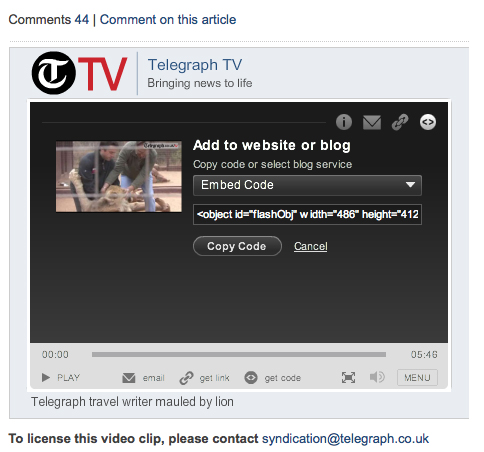It can now be reported that legal firm Carter-Ruck tried to prevent the Guardian from reporting MP Paul Farrelly’s question about UK oil trader Trafigura in Parliament, but it will no longer pursue its attempt.
Given this news, and that Trafigura and Carter-Ruck are trending topics on Twitter this morning, it seems timely to publish this commentary on events from last month.
[NB: Farrelly’s question concerns Trafigura and its solicitors, Carter-Ruck]
“Getting investigative journalists to co-operate is notoriously as difficult as herding cats,” said David Leigh, head of investigations at British newspaper, the Guardian, in a comment piece last month.
But a disregard for secretive journalistic conventions, led to his most recent large exposé: the events surrounding what many call one of the gravest pollution disasters in recent history.
Last month, the Guardian splashed with the story that British oil company Trafigura had offered a £30 million ($49,056,000) payout to 31,000 victims of toxic dumping in West Africa – £1,000 ($1,635) each.
The dumping itself – 400 tonnes of toxic waste in the Ivory Coast by an oil tanker, the Probo Koala, in 2006 – was already public, but less clear was what damage had been caused and whether Trafigura knew of its hazardous effects.
The Guardian reported the £100 million ($163,560,000) legal battle behind what it called a ‘cover-up exercise’ by Trafigura and published emails, allegedly showing that Trafigura ‘was fully aware that its waste dumped in Ivory Coast was so toxic that it was banned in Europe’.
(Trafigura response further detailed below; it denies liability and a cover-up.)
Global silence
Just the day before the Guardian published, Trafigura tried to get a gagging order on Dutch paper Volkskrant and Norwegian TV.
It had already attempted to force the Guardian to delete earlier news articles, and was successful in making the Times of London print a correction. A libel case was launched against the BBC’s flagship news programme, Newsnight.
Collaborative effort
Journalists from the UK, Norway, the Netherlands and Estonia joined with a lawyer from the firm Leigh Day, which had been attempting to sue Trafigura on behalf of 31,000 inhabitants of Abidjan, and the charities Greenpeace and Amnesty International in order to piece the story together.
The emails, which provided the bulk of the evidence, had been collected from various countries with the aid of the NGOs and then shared between the reporters, despite the legal threat looming large.
They decided they should go public when the United Nations published a scheduled report on the Ivory Coast disaster.
But Trafigura nearly put pay to the big scoop: it announced the compensation settlement to the West African victims, even though it continued – and continues – to deny liability.
Regardless, the Guardian and then Newsnight went public.
The links:
Global reaction
Despite the legal risk, allegations and emails were published without relying on Wikileaks. But the whistleblowing organisation did offer its own leaked document and praised the Guardian for its ‘solid work,’ via its Twitter feed (@wikileaks).
Greenpeace, a leading environmental campaigning organization, wants to see Trafigura prosecuted for manslaughter and grievous bodily harm, and cites documents which it says demonstrate the waste’s high toxicity.
In September, Trafigura’s £30-million pay-out was approved in the UK High court. But, as Katy Dowell of theLaywer.com pointed out, it’s not a straightforward victory for the claimants: Trafigura has never accepted liability. The victims only got a third of their overall claim and legal fees are yet to be discussed, she added.
Trafigura still claims that the firm representing the claimants, Leigh Day & Co, ‘had failed to demonstrate any link between the waste deposited and any deaths, miscarriages, still births or other serious injuries’. It also denies any allegations of a ‘cover-up’. In its statement on September 19 it claimed the company which actually dumped the ‘slops’, Compagnie Tommy, did so without authority. The settlement ‘vindicates’ Trafigura, the company claimed.
UK libel laws threat to democracy
It is another example that questions the place of UK libel laws in a functioning democracy. Vital facts about a devastating pollution disaster nearly went completely unreported, as a result of the huge costs involved in going to court.
Campaigning environmental journalist at the Guardian, George Monbiot commented that it’s not surprising that most of the British media wouldn’t touch it with a bargepole: “The reason isn’t hard to divine: Trafigura has been throwing legal threats around like confetti.”
He threw in a frightening thought:
“How many Trafiguras have got away with it by frightening critics away with Britain’s libel laws?
“These iniquitous, outdated laws are a threat to democracy, a threat to society, a threat to the environment and public health. They must be repealed.”
Susan Perry commented on the case for the MinnPost. Originally from the US, she was glad to be leaving the UK:
“It wasn’t only the story itself that stunned me. I was also astonished to hear the BBC journalists describe how the reporting of the story had been essentially suppressed in Europe’s mainstream media until last week. Only by banding together did the BBC and other media outlets dare to go public with the information they’d uncovered.”
